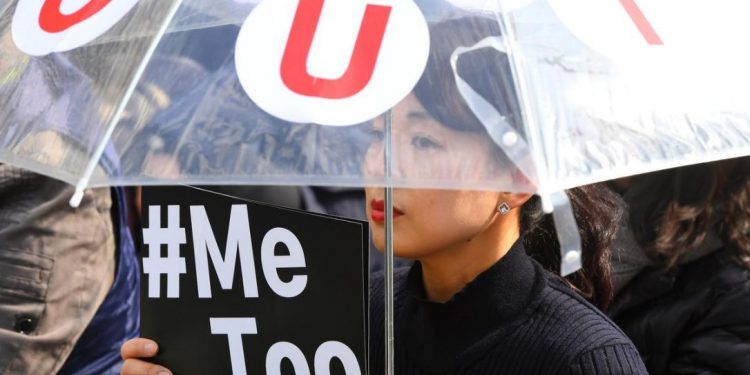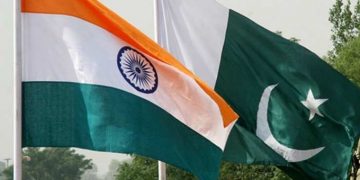Pradeep Kumar Panda
The #MeToo revelations by women against sexual harassment at the workplace hit the global conscience as a compelling case for strengthening women’s economic empowerment. But one crucial question that remains unanswered is what the macroeconomic policy makers of our country think about them. Can they be indifferent to the movement, dismissing it as one to be exclusively dealt with by the legislative fiat of the country?
The conspicuous absence of macro policy makers in the debate may be because social movements on women’s rights and gender justice are hardly ever recognised as an economic issue, when they are indeed a “compelling economic issue”.
They encapsulate unhealthy power relations (there are many layers to analyse when a man in power demands sexual favours from his colleagues as his “right”) and associated economic costs. The harassment affects the productivity of a woman in multiple ways.
If the fastest and smartest way to a country’s economic growth is by strengthening women’s labour force participation, dismissing the #MeToo revelations as “non-economic” or “private” can have adverse macroeconomic consequences.
Researchers have been pushing for the integration of gender issues in macroeconomic policy debates. However, macro policy makers in general adamantly believe “gender issues” are not their cup of tea. To them, “gender issues” – especially sexual harassment at work – should be confined to decision-making processes in an infinitesimally tiny “intra-household” or largely “private” world within the redressal mechanisms of her office space.
Even researchers, both men and women, are divided on gender in economics. It is a tug of war between the hard-core qualitative world of “compelling story telling” and the rigorous quantitative measurement of gender inequalities. It has been a struggle for feminist economists to push the frontiers of empirical investigation from a marginalised treatment of gender in economics to “gender mainstreaming”.
To put it upfront, even budgets are not gender neutral, for instance. What do the national and subnational budgets of a country consist of to address sexual harassment of women at work and violence against women? This is a crucial “human rights” question. The question of how a country effectively translates gender commitments into budgetary commitments is something we can no longer afford to postpone.
With the level of participation of the women’s labour force in India still abysmally low, it would be unfortunate for macro policy makers to think that #MeToo has nothing to do with planning and budgeting policies to ensure women’s economic empowerment.
The empirical revelation that budgets are a powerful policy tool to tackle gender inequalities in a country was first made in the National Institute of Public Finance and Policy’s ground-breaking study on “gender diagnosis and budgeting” in 2000. Prior to that, media debates on gender in budget were broadly confined to whether the finance minister had announced “tax cuts in cosmetics” as something done specifically for women. Otherwise, the finance minister focused only on his “core” responsibility of managing deficits, “medium-term fiscal frameworks” and other “macro-fundamentals” that matter for “business as usual”.
Given the gender budgeting frameworks within the Ministry of Finance, what the finance minister thinks of the #MeToo revelations – from the perspective of women’s economic empowerment – is crucial.
With the level of participation of the women’s labour force in India still abysmally low, it would be unfortunate for macro policy makers to think that #MeToo has nothing to do with planning and budgeting policies to ensure women’s economic empowerment.
Ex-ante policies to prevent such instances of sexual harassment are all the more relevant as the #MeToo cases are the result of an accumulated neglect of women’s economic empowerment along with failure of the “rule of law” to ensure that such cases do not occur.
How much a country spends on the economic empowerment of women is a compelling question, now more than ever before. The genie was out of the bottle when the National Institute of Public Finance and Policy published that targeted public spending for women’s economic empowerment was less than 1% of the Union Budget.
Researchers at the institute also flagged that this 1% came from as many as 40 programmes designed in various sectors specifically for women. Though gender budgeting allocations have since improved slightly, the situation of “too many programmes with too little money” demands the immediate attention of public financial management and calls for an urgent convergence of public spending to tackle gender inequalities, with significant budgetary provisions.
As women in India’s organised sector are just a small part of the women’s labour force, ensuring macro policies to safeguard women in the informal sector is equally important for holistic women’s economic empowerment.
The United Nations secretary general has formed a high-level panel for women’s economic empowerment and identified gender budgeting as a powerful policy tool to bring about such empowerment. Given the increase in the reporting of sexual harassment of women at work, these policy tools should be used effectively to initiate “ex-ante policies”.
What India needs is “ex-ante” policies to address the high rates of sexual harassment faced by women at work in the formal and informal, low-wage and high-wage sectors, and not “ad hoc” and “ex-post” interventions after the incidents have occurred.
India badly needs policies to empower women in the workplace. Translating gender commitments into budgetary commitments is something we can no longer afford to postpone.
Pradeep Kumar Panda is an economist. e-Mail: pradeep25687@yahoo.co.in






































